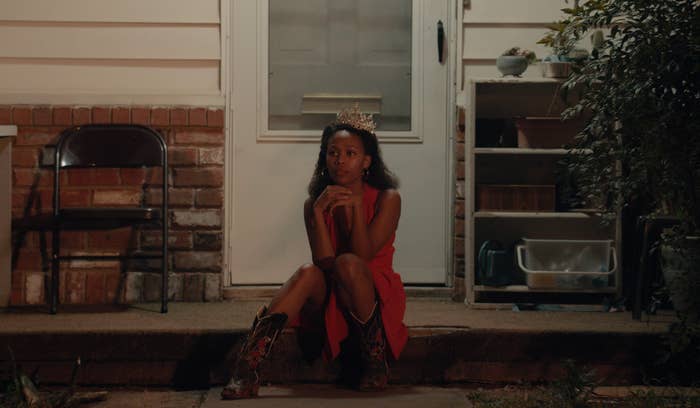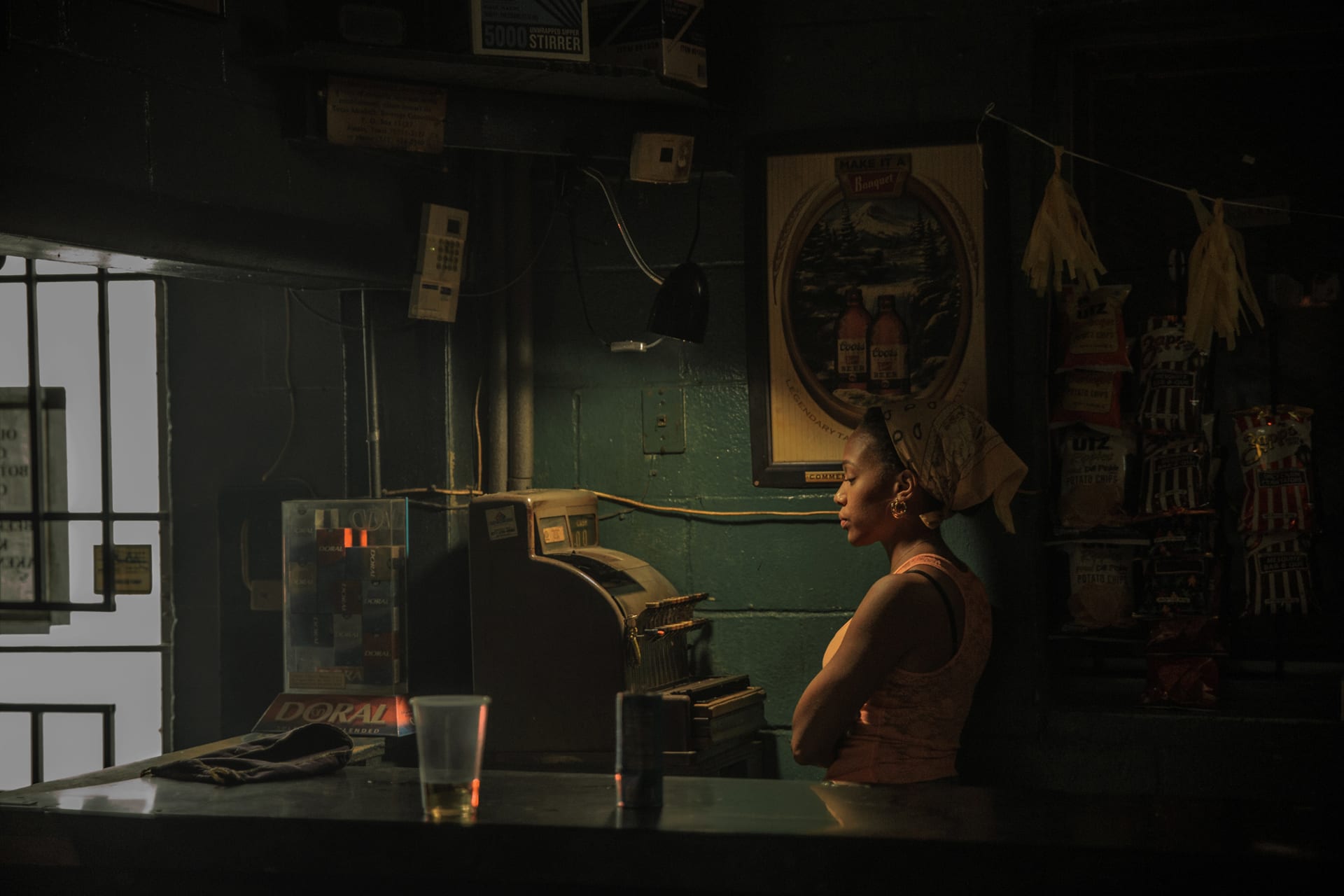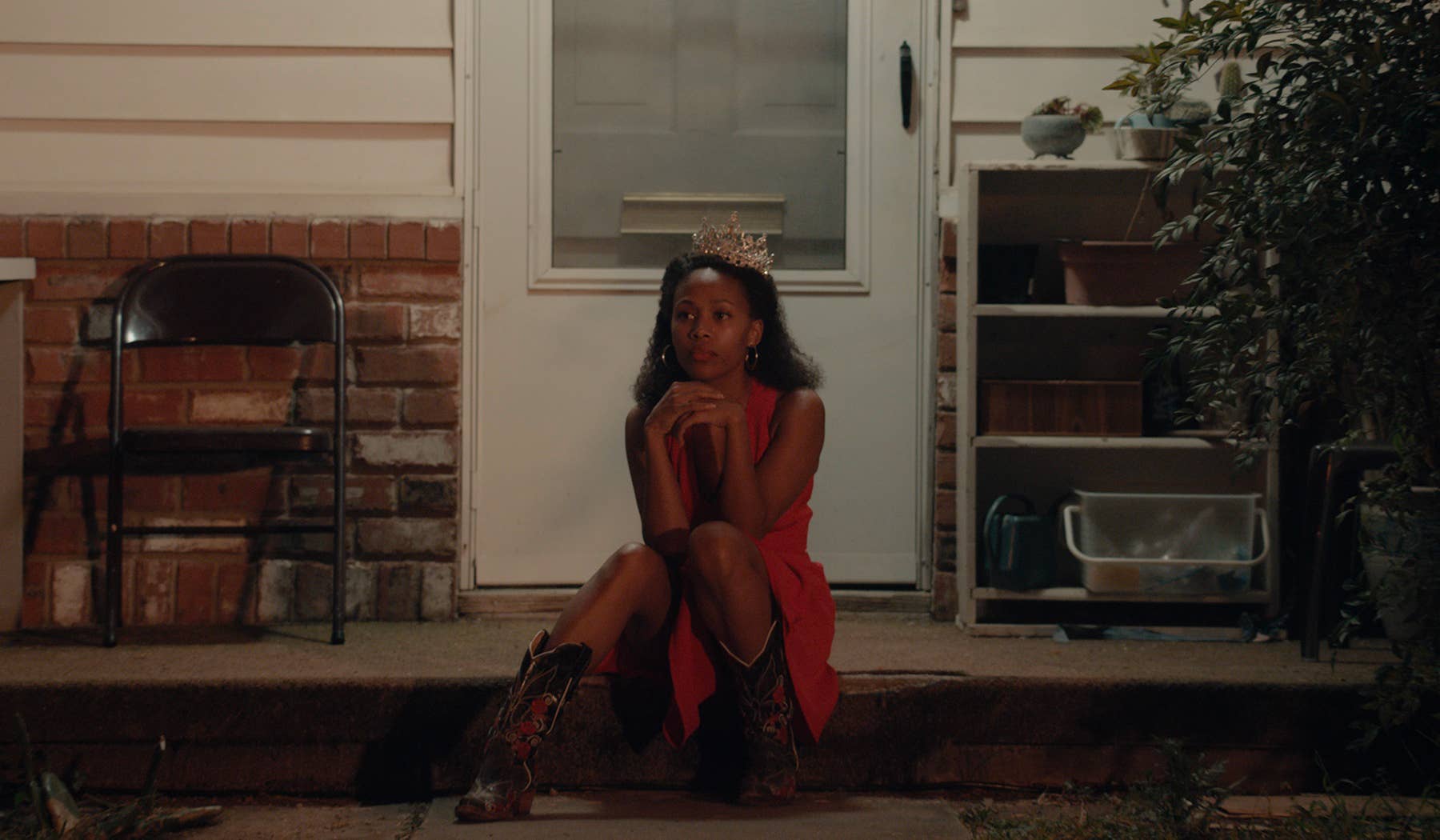
It's always fun when dope artists are given the opportunity to spread their wings and truly fly within a project uniquely suited for them. That's how I feel about what Nicole Beharie does in Miss Juneteenth, a strong drama that dropped on the best day for it: Juneteenth (June 19, 2020). The film, which is the directorial debut of Fort Worth's own Channing Godfrey Peoples (writer, Queen Sugar), follows Turquoise (Beharie), a former Miss Juneteenth pageant winner and single mom in North Texas who is now trying to get her daughter on the right track for the upcoming Miss Juneteenth pageant. The best part about the film? Despite it not being a story that's directly about the day's historical impact, you're still given history and information on the holiday and what it represents, as well as a real-life look at how they do it down in Texas on Juneteenth.
You probably remember Beharie best as Jackie Robinson's wife in 42 as well as Anthony Mackie's wife in that episode of Black Mirror. She's always great, but there's something about Beharie's performance here especially that moved me. She's mastered giving you everything with just a glance, wearing her character's past all over her face while her goal drives her movements and the way she interacts with people, including her daughter Kai (newcomer Alexis Chikaeze) and Ronnie (Insecure's Kendrick Sampson). (She's clearly ready to put more films on her back, Hollywood.)
Ahead of Miss Juneteenth's VOD release, Complex caught up with Beharie, who was game for diving into a number of conversations, from the protests and coronavirus pandemic going on outside to the importance of the themes in a film like Miss Juneteenth in a time like this to what it's like being a self-described petite woman having to whip around a hearse with no A/C during the Texas summer. Beharie's a real one for this art.
I was checking out your Instagram and I see you're very very active and vocal, as we all should be, about what's going on, the civil unrest in the world.
I think really, enough is enough with the brutality and inequality. I think that we're coming into a period of reckoning, which is beautiful. The veil is being lifted. People are seeing. Whether you choose to assimilate it and digest is up to you, but there's an opportunity for a great deal of positive change right now. I feel like that's the way that the needle is pointing. I'm cautiously optimistic about that. Some days I'm really upset and [wondering] "what is happening?"
One thing I think I've noticed is that seemingly because of quarantine, many people who would usually turn away, can't. These stories, which have always been present, now actually seem to be making more of an impact, because people have no choice but to watch.
I actually feel like this can move into the movie. That's what this movie is. The movie is about the same people that get discarded and ignored, and then not making movies about that. It's about their life, [not a] struggle with this large institution or some massive thing that goes wrong, like some violence towards them. This is just about their lives and [it took] someone like Channing knowing that it's important that you tell the love story or the coming of age story of our people, of the people of the United States of America that come in all faces, sizes, and socioeconomic backgrounds. That's what's going on. When I heard that, I was like, "Yes, that's exactly what's happening." And that's why bringing someone like Turquoise and Ronnie and Kai of the film...it's important to breathe life into those kinds of stories and have those movies be made.
Would it be fair to say that's one of the main reasons you took the role? Or was it just the fact that you were really digging the role of Turquoise?
For me, it's all of it. We weren't specifically in this context right now of uprising and legislation changing, but anyone of color knows that these things have also been happening for a while, [we were] just wanting to tell a variation of stories. These people in the movie are complex and it's not black and white. There's heartbreak. There are mistakes. There's misdirection. They're trying to see eye to eye in a marriage or within a mother and daughter. I feel like that pulled me in, because I was raised by a single mother. I know what that's like. On the other side, with a broader lens, of course, I'm like, "Juneteenth. Juneteenth is a holiday that people don't really know about. What is this?"
Having these people honor June 19th, 1855. Two years later, these people who are freed and emancipated, after the Emancipation Proclamation; that is so symbolic of even this moment right now. I never would have imagined that the film would be coming out into this context. I think it's a really powerful thing. It really has me thinking, as well, "What does freedom mean? What does it look like? What are the possibilities?" And if I see what the potential is, because it's like Turquoise is seeing her life in one particular way until there's a shift. I don't know if you've seen the film. But there's a shift. I don't want to give a little thing away, but it's almost like that's what's happening right now. There's a shift in the world. There's a shift and it's like, "Which way are we going to go?"

How familiar were you with Juneteenth prior to signing on to this? I know we're seeing TV shows and films referencing it more, but I think it's been more now than it has been in the last 15, 20 years, I'd say.
I didn't know about it. I went to college. I had to do a play once in college and we did research and that was it. That was basically it. And then, you would have your random, maybe a mom-and-pop store in Atlanta, or something, that would have a sign up or had a celebration, but on a large scale, it hasn't been acknowledged nationally or even really in the community in a way that it should. However, in Texas, it's a big deal. They hold [celebrations] every year. It's very sacred. I think that that's a wonderful example of honoring our community and honoring history and stories. I think that we can learn from that because then you don't just forget. It's an ongoing fight. There's 1863. There's 1865. And then, there's 1965. And then it's 2020. It's an ongoing movement.
There's a lot of emotion, a lot of drama, a lot of realness in the film. But I did like the parts of the film that were a little more touching, a little more humorous—seeing you pull up in a scene driving a hearse had me cracking up. Was it hard to drive that thing around?
I'm glad you liked that. That car was a lot. Actually I've only driven massive cars in almost every project I've ever done. I'm petite. That car has some actual trouble. That one was a little different, actually, I'm not going to lie. And we were in Texas filming in the summer—June and July. I believe the AC wasn't working. There's actually a scene where her daughter, Kai, gets in the car and is like, "What is this?" If you ever watch the film again, you might catch a moment of me being like, "Look, I don't know. I don't know what this is. What are we doing?"
I love that you said that there are moments of levity in the film. There really are moments of levity and love and happiness. That's what everybody's working towards. I keep saying, it's a love letter from Channing for her community. In the scene, even with her mom and going to church, there's always a little bit of fun. It's always a little bit lifted. You can see that even though it's deep, it's not that deep, and life still goes on.


